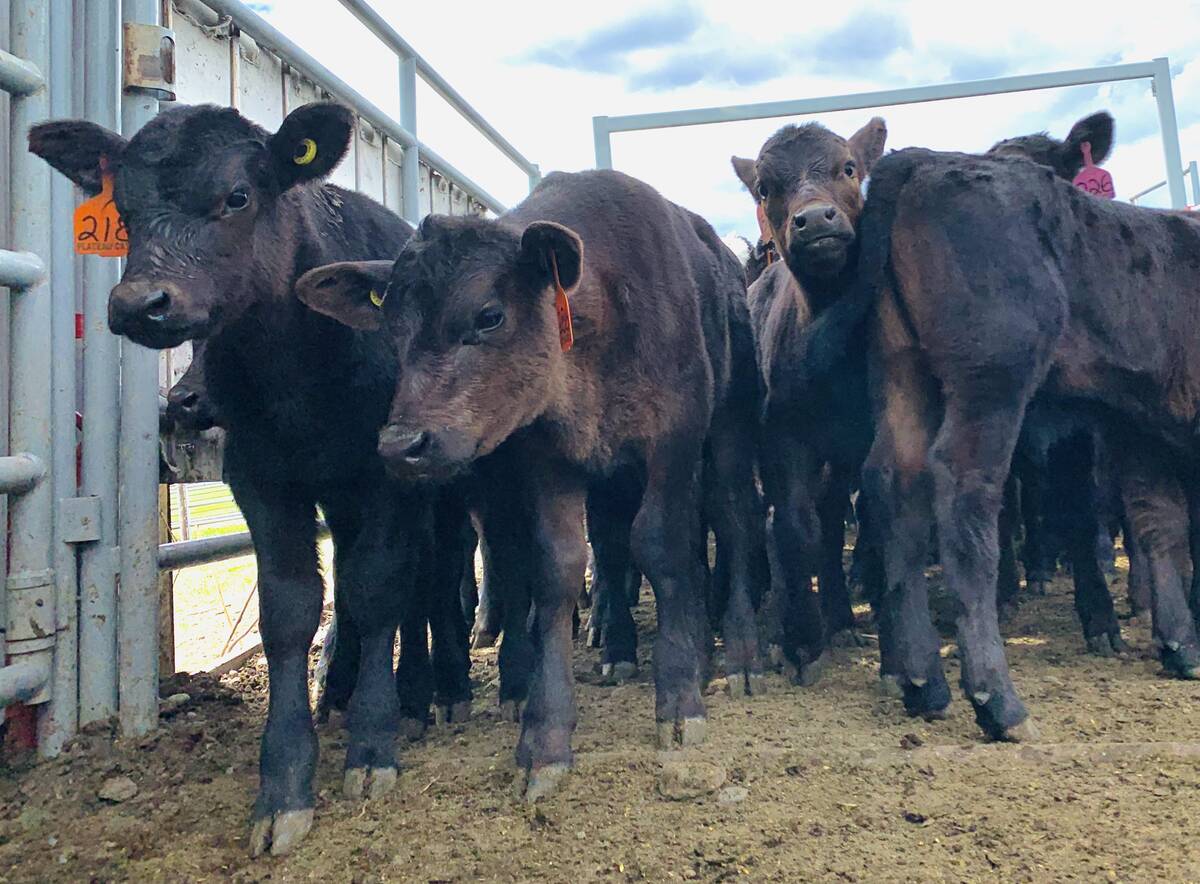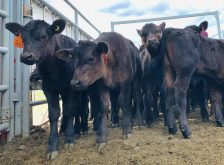They’re the neighbours most never get to know – but Paul Wipf wants to change that.
Wipf is a Hutterite who has become a popular speaker at conferences in the last couple of years, educating both rural Albertans about their mysterious neighbours and sending a message to back his own community about the need to embrace change and education.
It’s important for the Hutterite community, which includes about 49,000 brethren, to reach out to their fellow man, as sharing information can open minds, says Wipf.
Read Also

How ‘care and compassion’ protocols drive performance at this Alberta ranch
Plateau Cattle Company says lowering stress in calves using science-based practices leads to higher weaning weights and better animal health.
“If you don’t reach out, you soon think the world revolves around you,” he said.
Wipf is the farm manager of the Viking Colony, a community of about 110 people and one of 460 colonies in North America.
Many Hutterites have become a little more outwardly focused in recent years, says Wipf.
For example, Hutterites are now active in farm organizations, and serve as directors of Alberta Pork, Alberta Chicken, Alberta Egg Producers and others producer groups.
Another change has seen some colonies allow fairly open Internet access, although many do not allow or severely restrict it.
But the old ways dominate the community, and are the basis for much of Wipf’s presentation on his community, which dates back to the Protestant reformation in the 16th century. Like Mennonites and Amish, Hutterites are Anabaptists, a name derived from their adherence to the “believer’s baptism.”
“Hutterites believe in adult baptism, so that when someone becomes baptized it is by his choice, when they think they want to make that commitment,” said Wipf.
This belief was once considered heresy and early Hutterites escaped persecution by moving to Moravia, now part of the Czech Republic, where they developed a communal way of life, including the sharing of possessions – practices not shared by their Mennonite and Amish cousins. Persecution continued, prompting migration to North America in the 1870s. But the old ways, including language, were not forgotten in their new homeland.
“Early Hutterites were a German- speaking people and German is spoken in our communities today,” said Wipf.
Three branches
There are three different branches of Hutterites in North America. The Schmiedeleuts are the most liberal and live in Manitoba, the Dakotas and Minnesota. The Dariusleuts live in Saskatchewan, Alberta, BC, Montana and Washington. The Lehrerleuts live in Saskatchewan, Alberta and Montana.
It is only after baptism, usually between the age of 20 to 28, that a person becomes a member of the church and is allowed to marry.
Communal living and shared possessions stems from a belief in Gemeinschaft, which means living in a community as Christ did with his apostles.
“All members are provided for equally and nothing is kept for personal gain,” said Wipf. “Hutterites do not have personal bank accounts, everything is held communally and things are distributed according to need.”
The colony provides its members with fully furnished homes and clothing.
It’s a system that seems odd to the outside world and prompts some odd questions.
“People ask to what extent Hutterites share their possessions,” said Wipf. “Hutterites do not share their toothbrushes. They keep some personal possessions which include personal effects. Homes are private and household items within them are considered personal.”
Fields, barns, machinery, successes and failures of the colony are all communal. Hutterites are also pacifist and reject military service, and they donate to charities such as the Heart and Stroke Foundation and Christian Peacekeepers International.
Colony governance
The colony has a minister, who basically acts as the president of the community. His duties include conducting church sermons, marriages, baptisms and correcting wayward members. Other colony leaders include a financial manager, and the farm manager who supervises all fieldwork and distributes farm work to those over 15 years old who have not been given specific jobs. That trio, along with three deacons who are elected for life, make up the colony’s advisory council, which governs church and economic matters as oversees day-to-day operations.
“The advisory council is held accountable by the entire congregation,” said Wipf. “When we make decisions, the advisory council initiates it. It does not mean that the rest of the members cannot participate.”
Each area of the farm – be it dairy, other livestock or manufacturing – is supervised by an enterprise manager. That work is done by men, while women take care of gardening, cooking and childcare. But the lack of formal power does not mean women lack input in decision-making, said Wipf.
“I dare anyone in this room who is married to say he’s more powerful than his wife. It is no different in my house,” he said.
Food is eaten communally, and women – under the direction of a female head cook – rotate their cooking duties on a weekly basis. It works out that each woman will cook once every 20 weeks, said Wipf. Hutterites do all their own sewing and all the fabrics and dry goods are maintained by a head seamstress. Other positions include kindergarten teachers and gardening positions.
Hutterites attend kindergarten from age three to five and then attend English and German school until they are 15 years old. Students take the same curriculum as students in public schools, said Wipf.
Access to learning and education is something that needs to change, said Wipf, who believes education should go all the way to Grade 12 and or beyond. His is not a widely shared view.
“One thing about Hutterite communities is that they’re very slow to change,” said Wipf. “If there is to be change, it will come from inside the colonies, at their pace.”
———
“OnethingaboutHutteritecommunitiesisthatthey’reveryslowtochange.Ifthereistobechange,itwillcomefrominsidethecolonies,attheirpace.”
PAUL WIPF















